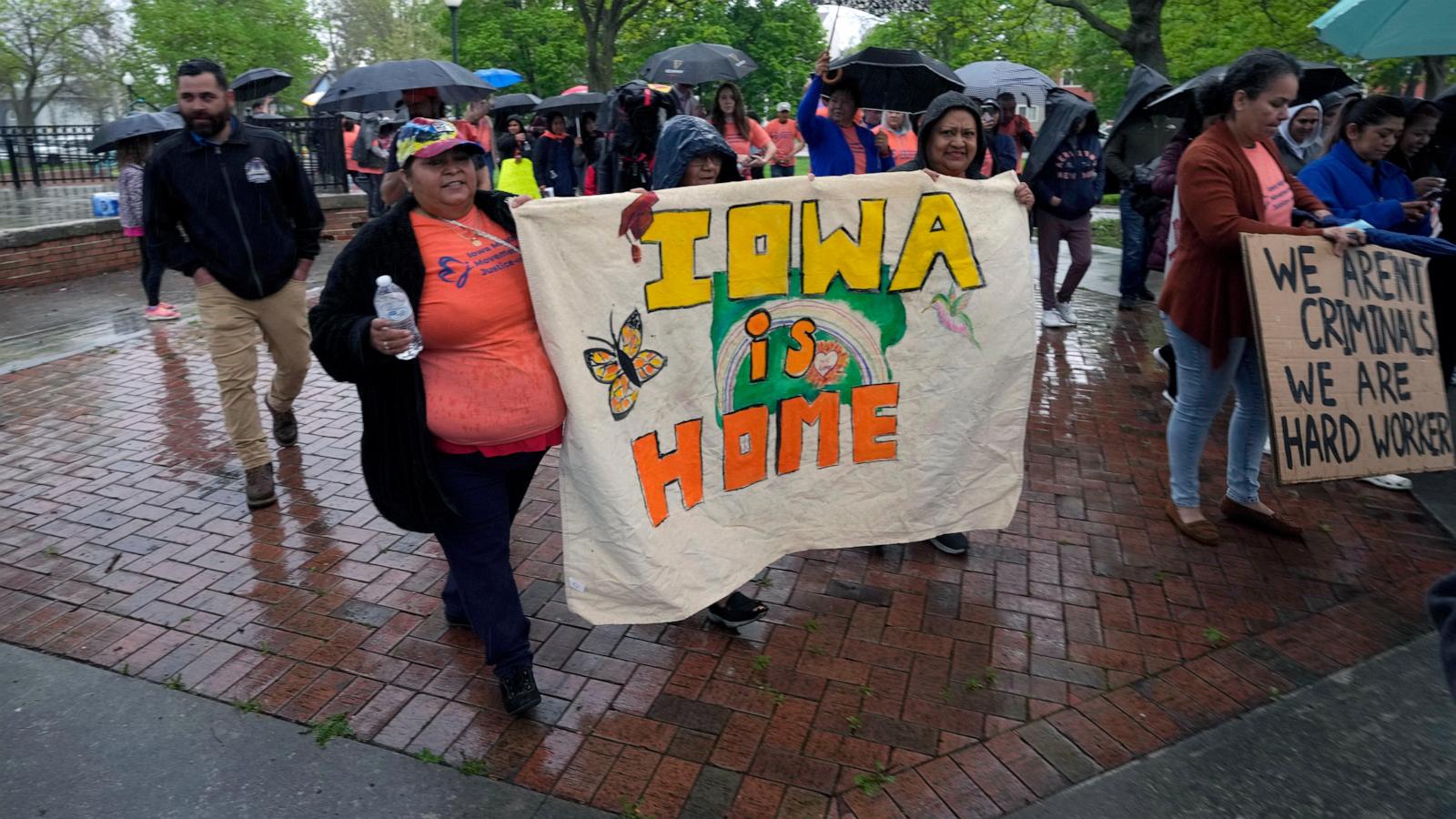Iowa's Immigration Law: A Legal Battleground
The recent legal wrangling surrounding Iowa's controversial immigration law has sent shockwaves through the nation, igniting a fiery debate about states' rights versus federal authority. This isn't just some sleepy legal case; it's a clash of titans, pitting the state of Iowa against the Biden administration and immigrant rights groups, with the future of immigration enforcement hanging in the balance! What are the real implications of this law? And what does it mean for the future of immigration in the US? Buckle up, because this story is far from over!
Iowa's Bold Stance: Criminalizing Illegal Presence
Iowa's law, similar to legislation in Texas and Oklahoma, makes it a state crime to be present in Iowa illegally. The language is clear: if you've been ordered deported or previously denied entry to the U.S., you risk facing state charges and imprisonment. This direct challenge to federal immigration policy has drawn sharp criticism from opponents who say the law is an unconstitutional overreach, usurping the federal government's exclusive power over immigration matters. This "radical" approach, many argue, is intended to crack down on undocumented immigrants, increasing surveillance and limiting already vulnerable communities.
State vs. Federal Authority: A Clash of Titans
The core issue in this conflict is simple yet monumental: who controls immigration enforcement? Iowa contends it has a right to supplement federal action to increase the safety of its citizens, whereas critics point to the Supremacy Clause of the U.S. Constitution, which gives federal government primary authority on matters like immigration. This dispute has raised fundamental questions about the balance of power between states and the federal government. Will the decision set precedence, or does this only represent a snapshot in this larger tug of war?
A Temporary Block and Future Uncertainty
A federal appeals court initially placed a temporary block on the Iowa law. The court reasoned that the law would likely interfere with the federal government's authority to set and enforce immigration policy, leading to chaos, inconsistent law enforcement and unintended foreign policy complications. Yet a subsequent ruling regarding a lawsuit filed by the Iowa Migrant Movement for Justice brings fresh uncertainty. The court suggested that, should the Department of Justice under a Trump presidency withdraw its lawsuit, the state-level case becomes moot. This casts a long shadow on the future, potentially altering the trajectory of this crucial legal battle.
Legal Battles Loom: What Happens Next?
With the political climate shifting, this legal showdown will take new turns with major political weight. A Trump administration might withdraw the Department of Justice's involvement, dramatically changing the court landscape and altering the strategies that groups fighting this law are considering. It makes an already complex situation infinitely more tangled. With significant implications for other states considering similar measures, this case is likely far from over. Is this just round one, or will we see many future appeals in various courts across the US?
The Political Undercurrents: States Push Back
The Iowa law's passage isn't just a legal matter; it’s deeply embedded within the larger national conversation on immigration. Republican governors across the country have expressed dissatisfaction with the Biden administration's immigration policies, claiming a failure to control the southern border and to manage the flow of undocumented immigrants. This discontent fuels moves to support laws like the one passed in Iowa, as states aim to solidify their stance on undocumented immigrants, directly challenging current immigration laws. The political discourse has turned especially combative as new elections begin to cycle into focus.
A National Trend? Will More States Follow Suit?
The question that every politician is likely now asking themselves: could more states move toward enforcing state-level immigration enforcement and legal frameworks? With political polarization reaching unprecedented levels and an ongoing increase in national conversation regarding stricter border controls, will additional states attempt to replicate this case and create legal issues on a larger national scale? What would it mean for legal framework and political relations across different jurisdictions?
Take Away Points
- Iowa's immigration law directly challenges federal authority on immigration.
- A temporary block exists on the law, but the situation is evolving based on federal participation.
- The case has deep implications for states' rights, immigration enforcement, and foreign policy.
- This single legal battle demonstrates a growing national trend with far-reaching implications.









